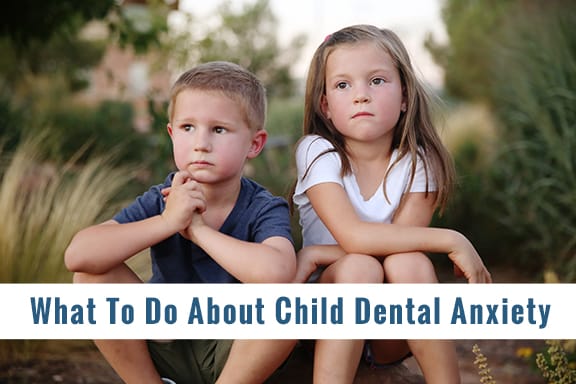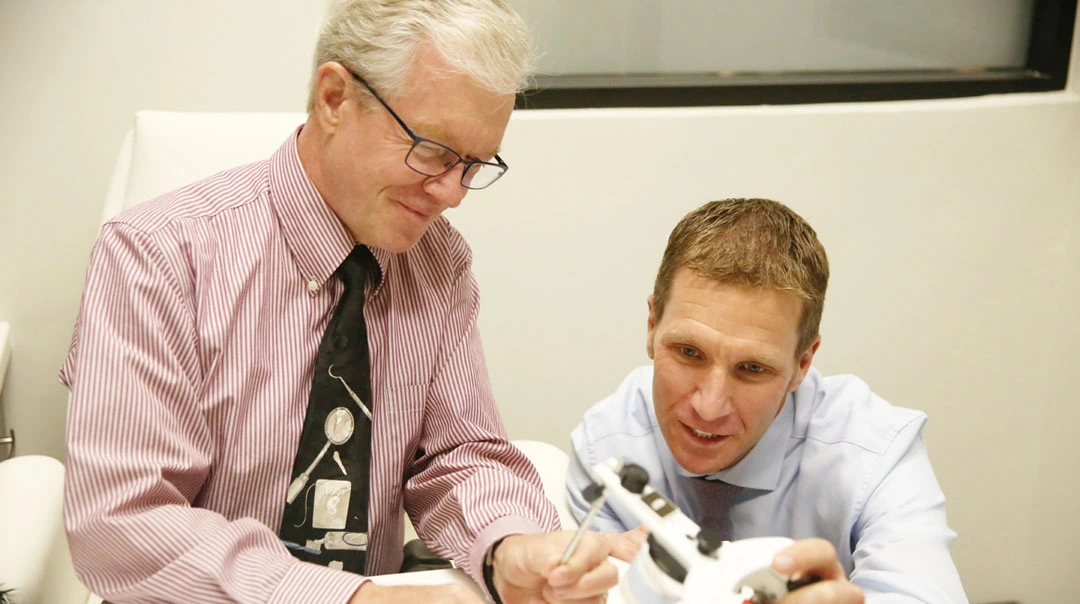
While we pride ourselves on providing a welcoming environment here at Riverside Dental Care for our waiting patients, children can often struggle with dental anxiety. Sometimes, this anxiety can stem from previous visits to other dental clinics, or it can simply be general anxiety that some children experience before a dental visit.
To help address your child’s dental anxiety, you can do a number of things—from explaining what happens during a dental visit to having your child listen to something pleasant during the cleaning. Below are some of our dentists’ top tips to help manage your child’s dental anxiety.
Start Dental Visits When Young
The sooner your child starts to visit with our dentists, the less likely they will struggle with anxiety around the appointment. Since the regular visits can help demystify the process, your child can also get used to having our dental hygienist and our dentists check-in their mouths.
Children should have their first dental visit six months after their first tooth erupts or by their first birthday, whichever one comes first. That way, not only can your child become accustomed to going to the dentist, but our dentists can also track your child’s tooth development.
Talk With Your Child About What Happens
Part of what makes dental visits intimidating for children is that they don’t know what is going to happen or why it is happening. Using age-appropriate language, talk to your child about what is going to happen during their dental cleaning.
For example, say you are talking to your three-year-old. You can talk about needing to bring some toys or coloring books for the waiting room, then how someone will take special pictures of your child’s teeth (x-rays). Then, they will get to sit in a cool chair, and someone nice will clean their teeth.
You can also assure your child that you will stay with them the whole time. Often, that alone will help a nervous child calm down.
Discuss Concerns With Dental Staff
When you contact us to discuss our dental services and set an appointment for your child, you can also bring up that your child gets anxious during dental clinic visits. It is not uncommon to hear that children are anxious about dental appointments—plenty of adults get anxious too!
Depending on your concerns and potential restrictions, our staff can give you specific recommendations and note on your file what accommodations need to be made.
Role-Play Dental Visit
For younger children, role-playing a dental visit can make it less intimidating for your child and more fun. You can go through the whole process—check-in and waiting, being called back, etc.—or just stick with the parts your child might find scary.
With you in the role of the dentist, take pictures of your child’s teeth with your smartphone, and you can use your child’s toothbrush to do the cleaning. Just be sure to explain that the real dentist will have different-looking tools, but they will do similar things. After playtime, your child might be more excited than anxious about their upcoming dentist visit.
Avoid Sharing Dental “War Stories”
There is sometimes an urge to share “war stories” with each other about unpleasant dental experiences. While that often is fine with other adults, children generally don’t have the reference points to make these stories anything other than terrifying. So, while it may be tempting to sympathize by sharing your own dental concerns or scary experiences, it’s best you keep those to yourself until your children are older.
Have Them Listen To Music Or Audiobook
Some children need a strong distraction to help them make it through a dental appointment. A non-intrusive way to help your child tune out their anxiety is to have them listen to music or an audiobook during their dental cleaning.
Set up a signal for your child for them to pause what they are listening to so that they can be instructed by the dental hygienist or one of our dentists. That way, your child can remain calm and not have to listen constantly for instructions.
Help Your Child Practice Good Oral Hygiene
Children who know that they practice good oral hygiene are often less nervous about going to the dentist, as it is less likely that a problem will be found. For the first five to six years, having good oral hygiene depends heavily on parental involvement. No matter how willing a four-year-old is, they don’t have the skills to effectively brush their teeth or floss.
We do encourage parents to allow their children to first brush and try to floss—maybe you want to measure out the dental floss—so that your child can get used to the motions and habits. But after they try, it’s your turn to ensure everything is cleaned.
If you would like to schedule a dental cleaning for your child—or the whole family—feel free to contact us today to set up an appointment.



Leave a Reply